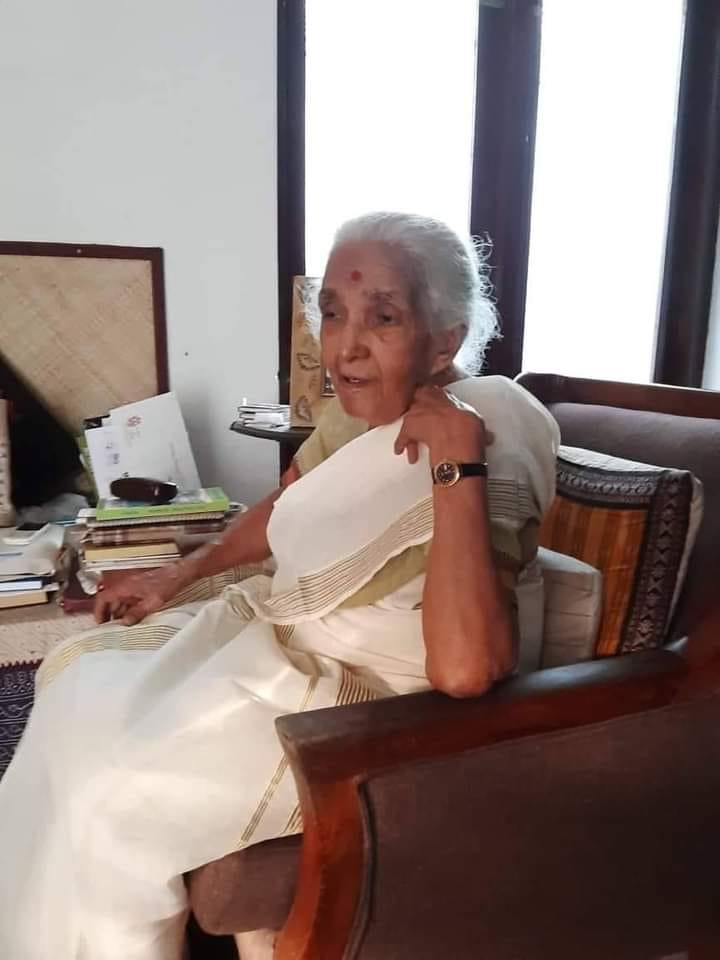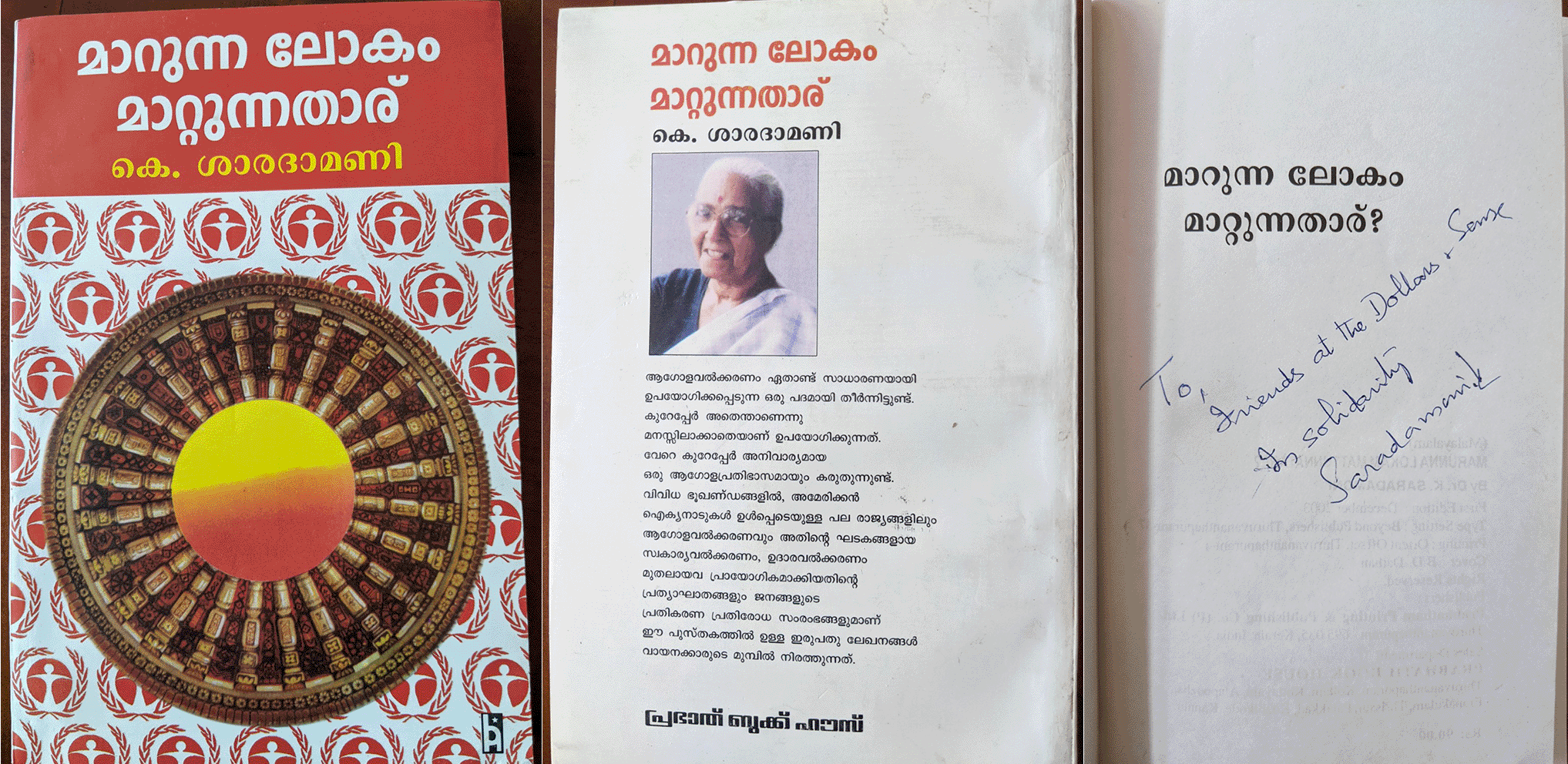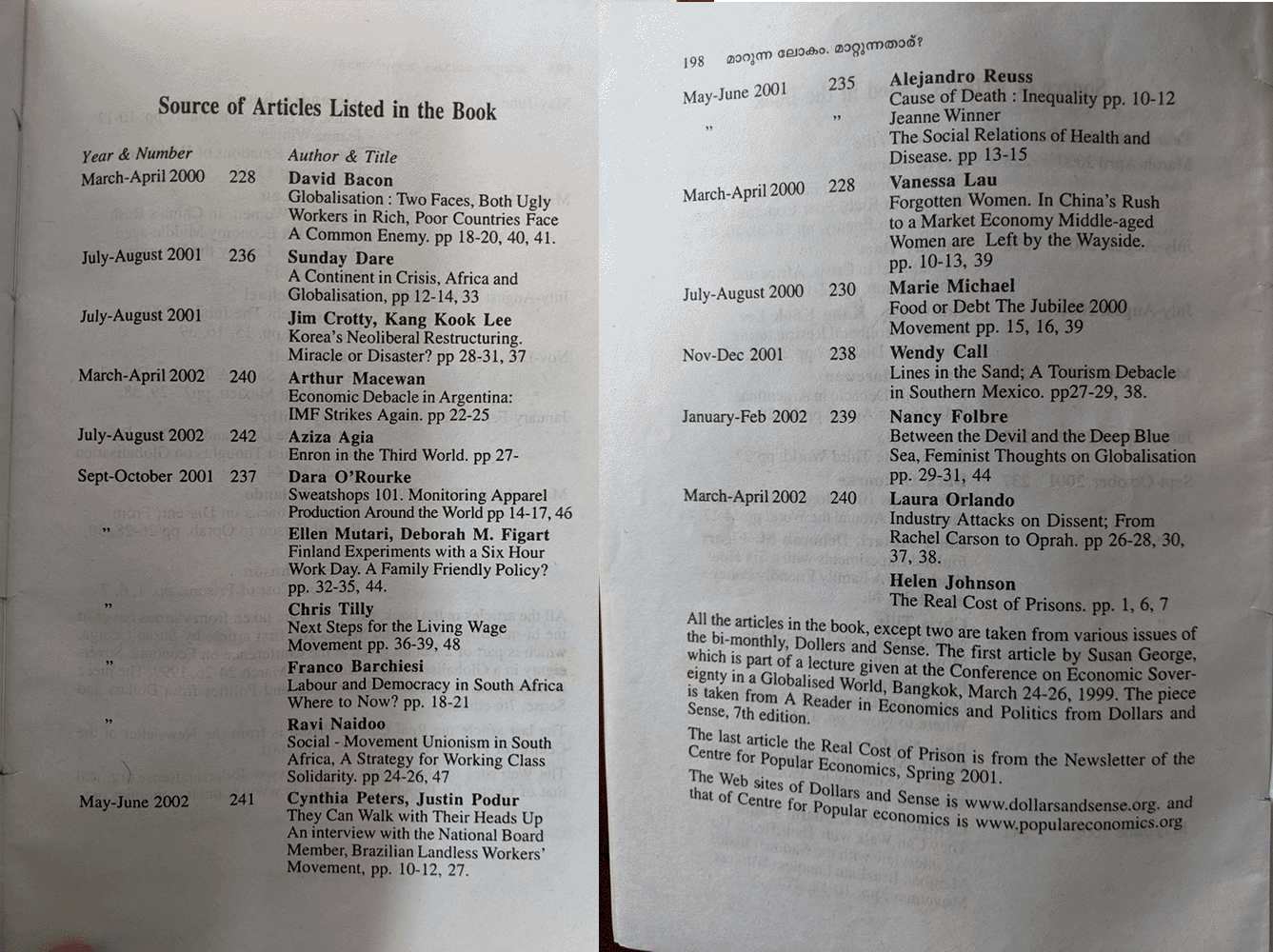Fighting Climate Change in Portlandia
Not only is failure not an option, those fighting to avert cataclysmic climate change have achieved important successes worthy of celebrating.

We at Dollars & Sense close out 2021 by belatedly noting the passing of Dr. K. (Kunjulekshmi) Saradamoni, economist, feminist, and pioneer in gender studies/women's studies and in Dalit studies. Dr. Saradamoni was author of numerous books, the most famous being her 1980 book Emergence of a Slave Caste: Pulayas of Kerala, which was based on her 1971 dissertation entitled Changements économiques et sociaux au Kerala: la caste des Pulayas depuis 1800, which she completed at University of Paris VII under the supervision of the anthropologist Louis Dumont. Before her doctoral studies, she had studied at the Government College for Women and University College in Thiruvananthapuram, Kerala, according to her obituary in The Hindu. She also received an M. Litt. degree in economics from Madras University in 1957. She began her career as an economist at the Bureau of Economic and Statistical Studies in Kerala, and she joined the Indian Statistical Institute in New Delhi in 1961 and taught there until 1988. Dr. Saradamoni died on May 26 at her house in Kowdiar, Thiruvananthapuram. She was 93.
Dr. Saradamoni was described as "respected social scientist, economist, writer and an inspiration to generations of feminists in Kerala" by The News Minute. The Wire remembered that she "tore into every piece of received wisdom on whatever subject she spoke about provoking and engaging everyone around," and elaborated thus:
Even those who thought she belonged to their camp would often be stunned by her merciless exercises in introspection. And when she was only a listener, she would invariably be on her feet after every speech to shoot off a volley of hard-hitting questions at the speaker.
The same piece in The Wire also explained what was so explosive about Dr. Saradamoni's research on gender and caste in Kerala:
She was a path-breaker in many ways. Attaining education and health on par with men has long been the conventional indicator of women’s empowerment and lauded as a proud achievement of the celebrated Kerala model of development. However, since the 1980s, the model has come under critical scrutiny for its many limitations and flip sides.
Prominent among them was the continuing forms of discrimination faced by the Kerala women despite advances in education and health prompting scholars in Women Studies to ponder over the “glum behind the glitz” and the “enigma of the Kerala woman”. Most discussed was the “invisible Kerala woman”and her conspicuous absence from positions of power. She barely had a marginal presence in the legislature, the leadership of even supposedly progressive political parties, she ran much behind men in job participation, and atrocities against her too were no less in Kerala than in the ‘BIMARU’ badlands.
It was then that one particular woman stood vindicated for having crying hoarse about this paradox for many years often upsetting her own comrades in the Left, the unsuspecting champions of the Kerala model. Surprisingly, even as a young student in the 1950s, Saradamoni had written about the need for women to go beyond education and health to attain real empowerment and the need to fight for justice within the families. This was almost a decade before Kimberle Williams Crenshaw, the American theorist of Intersectionality, was even born.
A list (albeit incomplete) of her many, many publications on a wide range of topics can be found at WorldCat.
Dr. Saradamoni was in touch with heterodox economist in the United States, and attended the summer conference of the Union for Radical Political Economics (URPE) in 1997. She was also a long-time subscriber to and supporter of Dollars & Sense. In 2003, she published a volume of articles from Dollars & Sense that she had translated into Malayalam, the language spoken by some 38 million people in the state of Kerala. The book anthology was published under the title "Marunna Lokam Mattunnatare?" ("The Changing World, Who Changes It?") by Prabhatham Printing & Publishing Co. in Thiruvananthapuram, Kerala.
Here are the covers of the book, and the inscription from Dr. Saradamoni in the copy that her daughter, Asha Gopinathan, brought by the D&S office in 2012:

And here is the English-language table of contents of the anthology:

We are lucky to have had the solidarity and support of such an important scholar and activist as K. Saradamoni, who most certainly herself changed the world, for the better.
We offer our deepest condolences to her family.